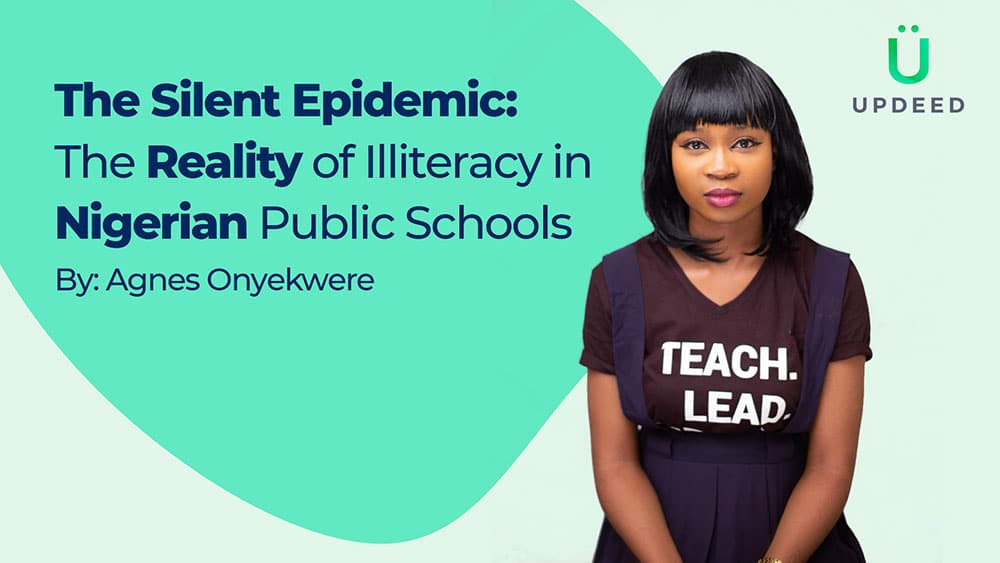The Silent Epidemic: The Reality of Illiteracy in Nigerian Public Schools
Before I am tagged a prophet of doom, I would like to declare a known fact; when it comes to the Nigerian public school space, we are all still very unaware of how much of a problem it is for the majority of our learners not to be able to read.
When I say ‘not able to read’, I don’t mean that they don’t like the idea of picking up their books or a novel to read or that they don’t care about meeting up their one book-a-week challenge.

Here what I am trying to say is that our students are not able to piece two sounds together to form a word. It means that some of them cannot recognise certain alphabets or label them correctly; it means that when they see a passage, all they can see are letters of different sizes grouped to fill the entire page. They have no idea what those groups of letters say or mean.
Now that we don’t see this as an actual problem is a problem because how can you try to solve a problem if you don’t even know it’s a real problem in the first place? We are still at the point where we think, “it’s not so much of a problem” this right here is the problem.
We are at the point where students don’t get to read till they leave primary school, which puts them at age twelve/thirteen without reading. One thing my time with children has taught me is that for kids, there’s time for everything, and our best bet is to teach them things we want them to learn early enough in their lives if not, it gets to a point where it’s harder to teach, and it takes a lot more effort to make it stick with them.
The case of my students
One thing we have to realise is the fact that reading affects every aspect of learning. Sodiq is a pupil in my class. He loves to solve math problems, is excited when it’s math time, and always has his hands up when there’s a need for someone to help solve a math problem.
The problem is, Sodiq cannot read, so when it’s time for word problems in Mathematics, he just doesn’t know what to do; I hate it when I watch him fail math questions during the exams despite the efforts he makes to solve and practice questions when he sees questions with lots of words, he throws in the towel because he just doesn’t know what the words represent.
Marvelous is another pupil of mine who believes she isn’t meant to excel academically; when some students in the class read, and it’s her turn when she isn’t able to read, she tells herself that “I don’t know the book” which means that she isn’t capable of learning.
This is a practical example of how the inability to read affects not just their academics but also their self-esteem, confidence, and self-worth.
If we, as educators as well as the government, see this problem as the huge problem that it is, by now, we would have started doing the following:
- Reduce the subjects pupils take in a day and make time for tutors to teach reading and be able to help the several unique reading cases in their classrooms.
- Stop promoting students who cannot read, and ensure that pupils who don’t pass standard reading tests get to repeat them until they do.
- Create appraisal systems for reading, for example, including oral reading tests for pupils.
- Creating fun activities around reading, such as reading competitions organised within schools and across the state, local and national levels.
- Partnering with reading experts to help train teachers to combat the issue on the ground, considering that some of our teachers have not had any real training in decades.
Unfortunately, none of the five steps listed above has been taken, so I am not wrong when I say that “our public schools have not been winning and most likely will ultimately not win the fight” against pupils’ inability to read. It’s not being pessimistic; it’s called being realistic!
Ready to make a positive impact in the world?
UPDEED is the place for you. Our free and open platform is filled with inspiring stories from individuals and organizations who are making a difference in their communities and beyond. Connect and collaborate with like-minded individuals from around the globe on UPDEED, and discover your own potential to create meaningful change. Join our community and make a difference.





